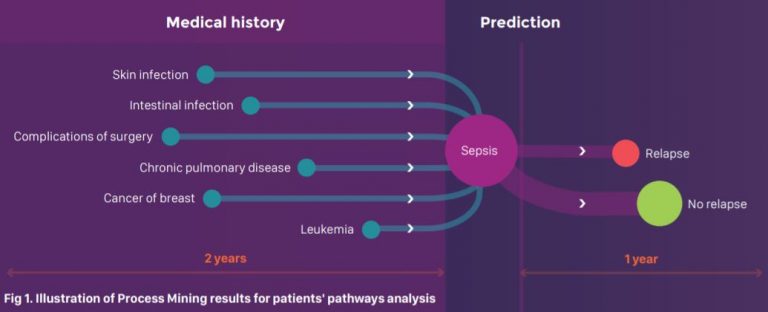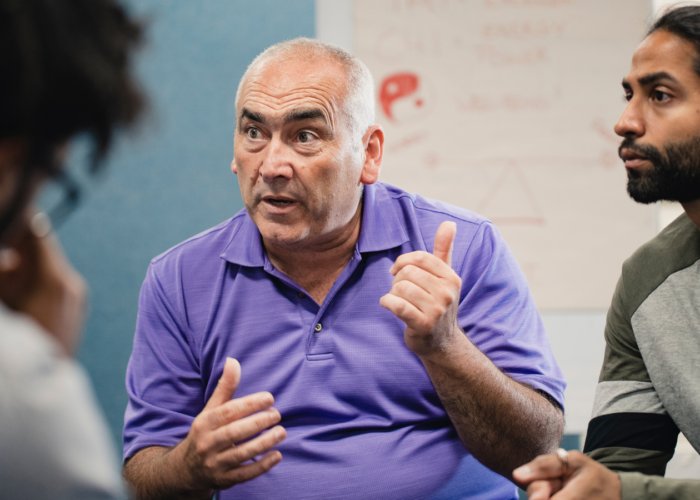ICHP is always passionate to take part in collaborations locally, nationally and internationally, and a partnership with French company HEVA is promising to help support the NHS in improving care for sepsis patients. Andi Orlowski, ICHP’s Deputy Director of Business Intelligence, and Martin Prodel, Data Scientist at HEVA, discuss their recent project.
HEVA specialises in the analysis of big health data and the development of innovative tools, and its recent work with ICHP focused on using its data mining technique and machine learning to analyse NHS data and design improved pathways for patients with sepsis.
The collaboration came about at the suggestion of Geraint Lewis, Chief Data Officer at NHS England, who was aware of the data mining expertise being developed at HEVA and had discussed with them the possibility of working with a partner in the UK.
Creating the partnership
“After a decade in the French market we have naturally started to look at neighbour countries to expand the extent of our studies,” explains Martin. “It is important for us to link with international partners, especially those with a very high expertise in their country’s healthcare data, like ICHP.
“This partnership was the first between our two teams, and everyone from ICHP showed great trust and enthusiasm for this innovative study. It was the first time we had built an entire project in full collaboration – from the objectives for ICHP and the NHS, to the algorithmic method we would deploy, the funding, the R&D effort, the extra time needed for the project from both parties, and the full transparency.
“The strength of the project also relied on the complementary profiles of the people who worked on it. HEVA brought data-related skills (data managers, algorithm engineers) and ICHP brought business analysts, public health vision and data access.”
Designing the project
The project was designed to look at the risk of relapse in sepsis patients. It used claims data from the NHS to map patient pathways and used the innovative methodology of structuring patients’ medical history in event logs to improve prediction performances while maintaining explainability of predictions.
For data visualisation, the bow tie analysis (with sepsis as the target in the middle, inputs of medical histories on one side and outputs of relapse or not within a year) helps support an understanding of huge volumes of data in a single chart.
It was agreed at an early stage that this project focusing on sepsis would be a proof of concept feasibility study, with the aim of replicating it in other relevant medical areas. For example, in France, HEVA has used the technique to study patient pathways in the care management of diabetic patients (eight-year follow-up).
“Our aim is to first prove that this particular analysis technique works and then to use it to identify potential areas for improvement in the NHS care of patients with sepsis,” says Andi. “We’re interested in seeing variation in pathways and opportunities for better outcomes and we’ll be working closely with UK sepsis specialists.”
The next steps
The work so far was presented through a poster at the Conference of the European Working Group on Operations Research Applied to Healthcare Services, and two scientific journal articles are also being written to share the learning. The conference poster, which contains more detail about the bow-tie analysis, is available here.
Andi adds: “We now have the potential to use this technique with live data in an ongoing process to see whether there is a relationship between the variations and the outcomes – there is still more work to do.”
Martin agrees, saying: “Sepsis is a major topic from a public health perspective. This study will clearly pave the way for further studies and a prevention plan in this area. In particular, the present work shows that data is necessary for risk management to define future health policy, and it shows how innovative algorithms and machine learning are useful.
“We hope to continue working together with ICHP and have already started discussions. This technique is really bringing intelligence that had not been discovered before.”




